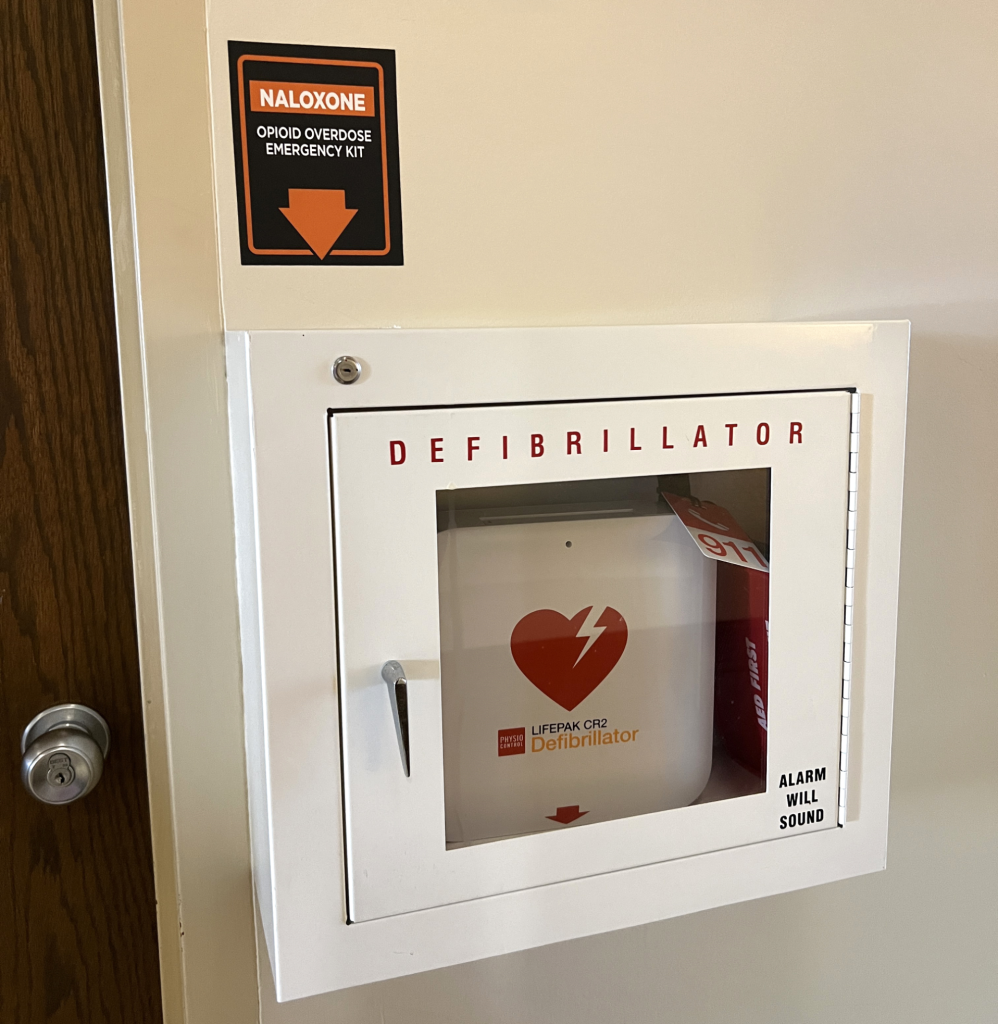
Naloxone, also commonly known as Narcan, kits are now available across campus in designated defibrillator cases.
Naloxone is an FDA approved medicine used to quickly reverse an opioid overdose. It should be used as soon as possible to treat a known or suspected overdose. Once naloxone has been administered, the individual must receive emergency medical care immediately.
Signs of an Opioid Overdose
- Loss of Consciousness
- Markedly constricted or pinpoint pupils
- Breathing difficulties (slowed, labored, and/or irregular breathing)
- Respiratory arrest (completely stopped breathing)
- Choking, gurgling, or snoring sounds
- Blue or purple lips or fingertips
- Being unresponsive to loud noises, shaking, or painful stimuli
Do NOT wait for all symptoms to be present to seek help
